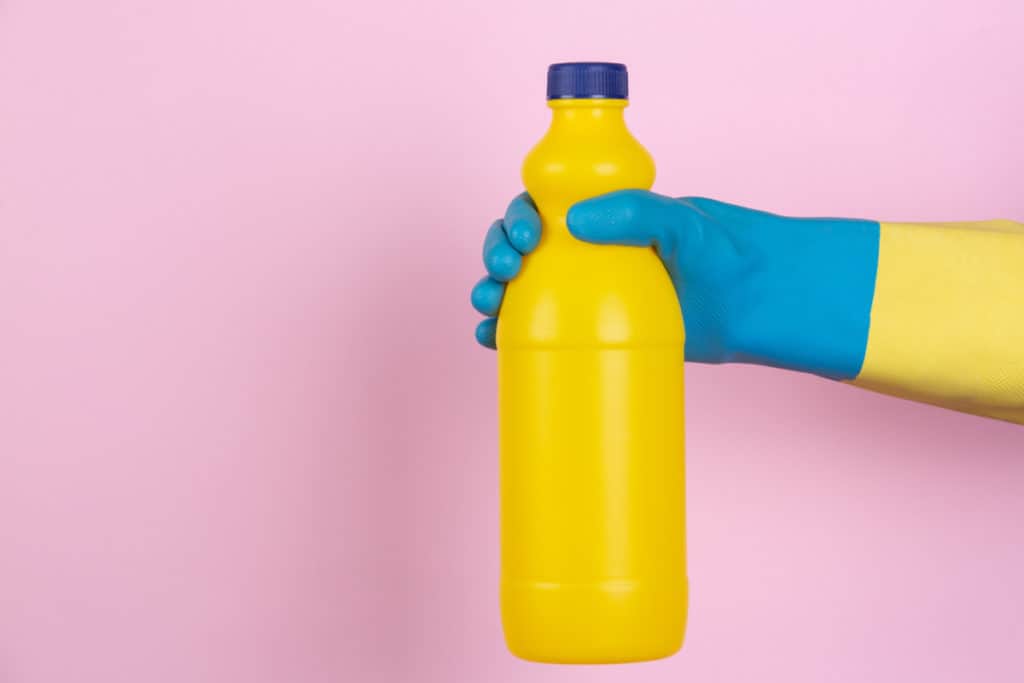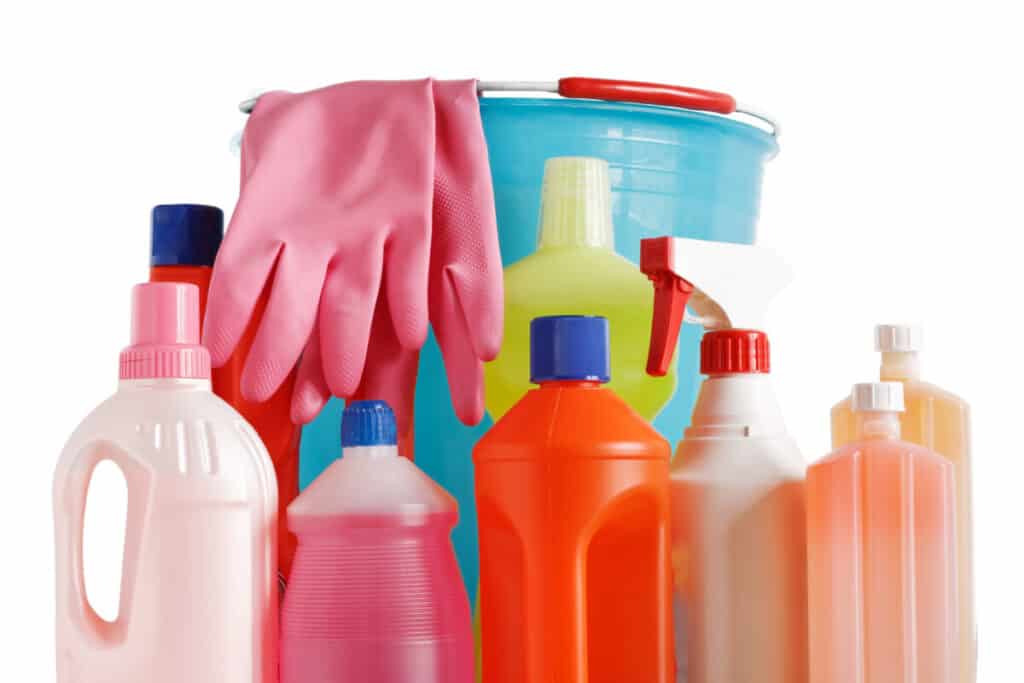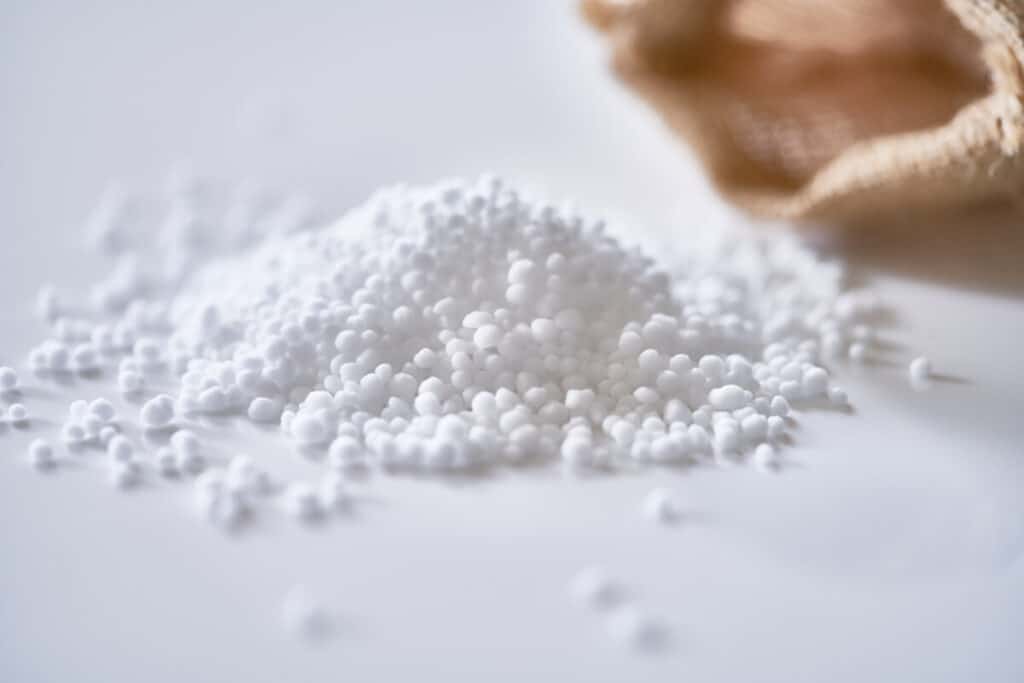
If you used ammonia and don’t know how to properly and safely dispose of it, you have come to the right place. We have all the details you need to know if you need to discard your ammonia.
Dispose of ammonia by diluting the ammonia with water. Another way to discard it is to neutralize the ammonia with cat litter, baking soda, and sand. To get rid of the ammonia bottle, rinse the bottle with water and dump any excess liquid into the sink. After that, recycle the bottle.
There are a lot of specifics and details you need to know about disposing of ammonia. Keep reading to know how you should safely get rid of ammonia.
Easiest way to get rid of Ammonia
Diluting ammonia with water is a very easy way to dispose of your ammonia. If you turn on the tap water in the sink and pour the ammonia down the drain as the water goes down the drain, then the ammonia gets diluted with the water. Make sure to always have more water than ammonia though. So if you use the diluting in your sink method, make sure to pour the ammonia slowly. This is best for small quantities.
Another way to dilute your ammonia, is to flush it down the toilet. Just like with the sink, you need to make sure there is more water than ammonia. So you may need to repeat the process a few times.
When you dispose of ammonia, your biggest issue is going to be making sure you are not exposed to the substance. Make sure to wear gloves when handling, and consider a mask as well. Ammonia is frequently used as a drain cleaner, but you’ll need to watch out for fumes if you are disposing of a large amount of ammonia. Don’t pour it out in an enclosed space and dilute it with water in between smaller pours to keep it from getting too concentrated.
When you’ve emptied your ammonia container, don’t just toss it out! It can still contain traces of ammonia and ammonia fumes, which can hurt your lungs. Rinse thoroughly with water, until no trace of ammonia remains, then toss. Do not dilute ammonia with other chemicals, or mix with any other cleaning fluids you might be tossing. Ammonia can combine with other chemicals to create dangerous toxins. Bleach especially makes ammonia extremely hazardous. In general, you should never mix chemicals in your house unless you know what both are and how they react together.
Donating

If you are concerned about disposing of your ammonia, or don’t have the space to do it, you can actually donate ammonia and other household cleaners to chemical companies! Check in your area for companies accepting donations of ammonia. Your biggest concern is safely transporting ammonia. Just the fumes from evaporating ammonia can be harmful, so keep it in a secured container without leaks or a way for fumes to escape. This gets any extra ammonia off your hands, without any hassle about ammonia gas in your house or getting it on your skin trying to pour it out. It is also a lot more sustainable than just pouring the stuff out. Ammonia never expires.
Unsealed containers may allow ammonia to evaporate, making it much less potent, but as long as it is carefully sealed, your ammonia should last you a lifetime. When you purchase ammonia, make sure not to get it in very large amounts, as it is very heavily diluted when in use, or get it already diluted.
Things to Watch out for
Ammonia is extremely corrosive, which is something of a double-edged sword. It’s great when you are trying to remove rust or dirt, but can be very harmful if not diluted properly. When it comes into contact with skin, it can cause chemical burns in large amounts and irritation in small amounts. One risk factor is that full eye damage may not be realized until up to a week after the initial contact, so keep an eye on your eyes! If working with higher concentrations, wear gloves, a mask, and some form of eye protectant. The mask and eye protectors may not be necessary for smaller concentrations, but regardless of dilution, always wear gloves!
Ammonia is also highly flammable, so keep it away from anything that could light it. It is a great oven cleaner, but if you use it in your oven, make sure the oven is off, and if the oven is gas powered, make sure the pilot light is all the way off, as well as the main gas line. Even diluted ammonia fumes can cause problems, so don’t use ammonia in tight, enclosed spaces and open a few windows if you use it indoors. If you are exposed to ammonia, try to flush it out as soon as possible with water if it’s on your eyes or skin and fresh air if inhaled.
Uses for Ammonia

Before you just throw it out, keep in mind ammonia can be used for several household chores! It is most popular as a cleaning agent, and can be used as a disinfectant and dissolving agent. You can pour it down clogged drains, use it to clean your oven, or wipe areas that may be contaminated by bacteria.
Be careful. Ammonia is useful, but can be dangerous if not used properly. Always dilute ammonia with water before using, and open a couple windows to allow fumes to escape. Do not mix ammonia with any other chemicals besides water! It can react with many different chemicals and make toxic fumes. If you use it to clean anything you prepare food on, like a countertop, wipe down with water afterwards to keep the area safe for food! Be sure to wear gloves, and don’t get any on your skin or eyes.
Aside from a cleaning agent, ammonia is also a great fertilizer. Fertilizing crops was actually its original intention when it was invented. Ammonia is used as a fertilizer by either injecting it deep into the soil or, to keep things simple, just diluted with water and added to the soil. Too much ammonia can kill plants, so make sure it is diluted enough. Ammonia can also be used to break down hard-to-clean substances like rust or soot, as it is a corrosive alkaline. Finally, ammonia can be used to neutralize other, less pleasant odors. Just keep in mind it may replace those odors with the smell of ammonia, so use wisely.
Related Topics:
If you like the article above, here are some other similar articles you should check out!
